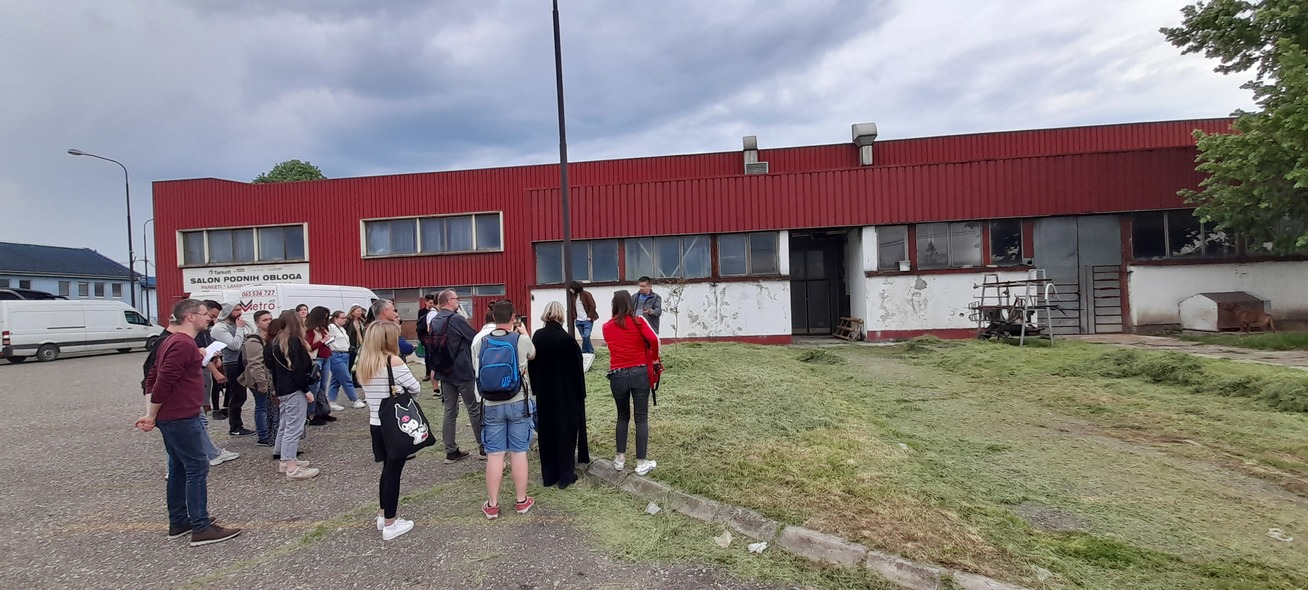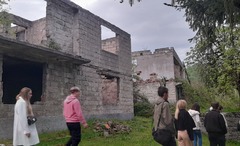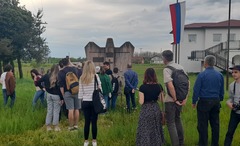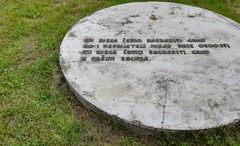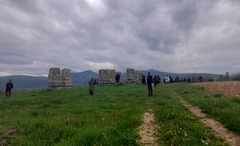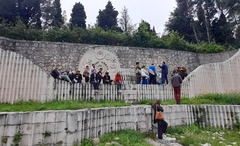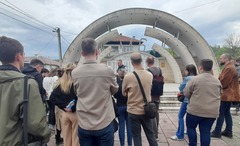Zagreb, May 23, 2023
From April 29 to May 6, 2023, we participated in the organization of an interdisciplinary study tour of sites of suffering in Croatia and Bosnia and Herzegovina from the period of World War II and the wars of the 1990s.
The trip was realized as part of the wider project "Places of Memory of Cultural Trauma" as a continuation of the graduate course "Cultural Trauma and Memory Politics" which Prof. Nebojša Blanuša teaches at the Faculty of Political Science and as a result of the joint cooperation of several constituent units of the University of Zagreb (students and professors of political science, journalism, photography, sculpture and history), the Belgrade Faculty of Media and Communications of the Singidunum University and civil society organizations - along with the Youth Initiative for Human Rights, the Serbian National Council and Documenta - Center for Dealing with the Past participated in the organization.
On the eight-day trip, we had the opportunity to visit the former detention camps - the Ustasha children's camp in Sisak, the Keraterm and Trnopolje camps in Prijedor and the Heliodrom in Mostar (on whose territory a museum to the Croatian Defence Council is currently being built) where serious abuses and executions were carried out in the period from 1992 to 1994.
There we spoke with survivors, representatives of victims' organizations and other witnesses of those times - Nevenka Končar, who was detained in the aforementioned children's camp as a child, Edin Ramulić from the Prijedor camp and Emir Hajdarević from Mostar, who, among other things, survived experiences from the Heliodrom camp.
In Sisak, we listened to a lecture by historian Tihomir Ponoš on the process of violent disintegration of Sisak's multiethnic community into an ethnically homogeneous society during the 1990s. We visited Ahmići in which on April 16, 1993, members of the HVO and a special unit of the HVO Military Police, "Jokers", killed 116 Bosniak civilians, and then Trusina, where on the same day members of the Army of the RBiH killed 15 civilians and 7 HVO members. We were greeted in Ahmići by Imam Mahir ef. Husić who took us through the memorial room, and in Trusina by Dragica Tomić, president of the Association of Killed, Deceased and Missing Croatian Defenders in the Homeland War Konjic.
We visited the Monument to the Revolution on Kozara by Dušan Džamonja, Necropolis to the victims of fascism by Bogdan Bogdanović near Novi Travnik, and with the guidance of historian and journalist Dragan Markovina the Partisan Cemetery in Mostar, which was devastated in June 2022.
We spent a few days in Dubrovnik, through which the former director of the Institute for the Restoration of Dubrovnik Vjekoslav Vierda took us and we listened to lectures by domestic and foreign professors on cultural trauma at the Inter University Center Dubrovnik. On our way back, we visited Split where activist Tonči Majić gave us a presentation about the Lora military prison, where a large number of civilians, mostly of Serb ethnicity, were detained and tortured in 1992.
It is worth mentioning that the first trip of this kind was realized in May 2022, during which the participants visited other marked and unmarked sites of suffering in Croatia and Bosnia and Herzegovina, followed by the interdisciplinary exhibition "Places of Remembrance of Cultural Traumas" and the documentary film "Traces of Trauma".
During the trip, we conducted reflection groups on a daily basis in order to, given the emotional complexity of the trip, provide a safe space for participants within which they could reflect on everyday experiences and share observations and thoughts. What they shared can be summarized as follows:
- Insufficient awareness of these events, especially in the context of growing up in the victim culture
- The problem of a binary narrative through which hatred is sown
- The importance of listening to all sides
- Talking and not covering up the past because without it there is no coexistence
- To spread experiences of people we had the opportunity to meet
- Indicate the harmfulness of suppression
- Necessary education reform
Finally, we list some of the statements in full:
- "More than spreading messages, I would like to apply the experiences of this trip in everyday life - to position myself more actively and critically towards every form of nationalism, chauvinism and imperialism.”
- To speak about all testimonies we heard, to try and correct misconceptions, to discover things that have no place in the public space, and after all to spend a little time in contemplation."
- "The Ahmići destroyed me. I feel emptiness and shame, but as always, we have the tools in our hands to never allow it again."
- "Quality coexistence in the territory of the former state can be achieved only if everyone admits his misdeeds and faces his past."
Photo: YIHR
